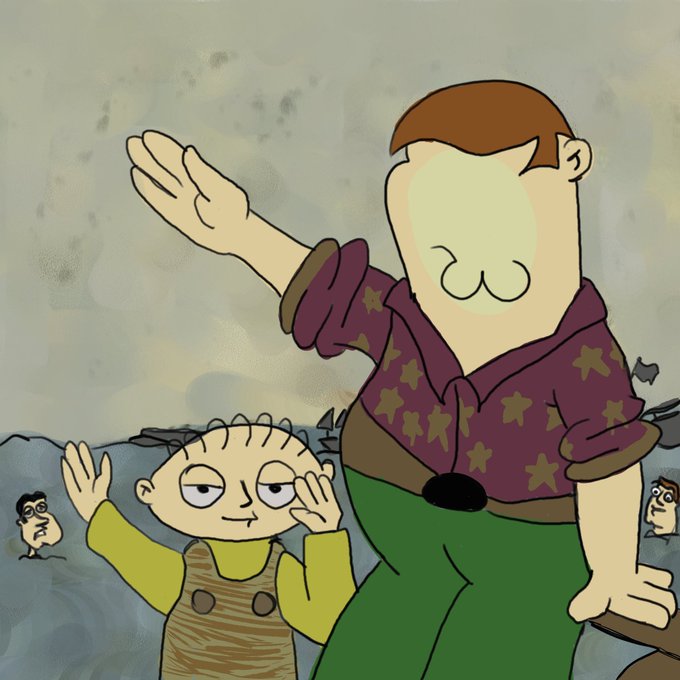China & Vietnam came closest to Guyana in the study.
Guyana is such a weird country to me, I briefly had a bit of a fixation on it.
It’s population is mostly Indian, but also mostly Christian, and almost entirely lives in the capital while the rest of the country is jungle. If you google street view the capital city of Georgetown it looks like a cross between New Orleans and a backwater British outpost in India. It’s simultaneously very LATAM and not LATAM at all.
And they have a very Caribbean style accent. It’s interesting what colonialism did to that region, culturally speaking at least.
Kind of an exaggeration because you don’t need all those seven groups. Take China
 they miss out on dairy, but the majority of Chinese are lactose intolerant. Like are we getting the cart and the horse mixed up here. They aren’t self sufficient there because they don’t need or want to be.
they miss out on dairy, but the majority of Chinese are lactose intolerant. Like are we getting the cart and the horse mixed up here. They aren’t self sufficient there because they don’t need or want to be.Plus meat and fish make up for the protein and calcium.
Then look at Australia
 . Deficient in fish but high in dairy and meat. Probably fine there.
. Deficient in fish but high in dairy and meat. Probably fine there.Deficient in vegetables less good but high in fruit, legumes, nuts and carb starches. So probably okay.
That’s actually nuts. global economics are weird and if not for capitalism it would have been amazing news that countries without their own food supply could find it from others.
Most countries should actually be able to feed themselves. And actually do have the capability to.
Yeah, it’s just capitalism and how the modern farming system was developed for capitalism that’s holding the world back
The thing here is mostly countries growing crops as export commodities instead of for local consumption, so there’s some optimization for climate/local labor costs and a bias towards cash crops. A lot of countries could diversify and grow their own food, like the US has massive amounts of farmland that’s mostly being wasted for animal feed and cheap sugar but could pivot to growing all necessary foods for a healthy population domestically if there was the will to do it.
Countries “without their own food supply” means areas where the human population is above a reasonable carrying capacity. If you start to supply those places with perishable goods from other places, the people there are dependent for their livelihood on the products of people from thise distant places. If those people are not remunerated with goods from the places they’re supplying, then this prospect just creates the opening for capitalism to (re-)emerge.
Guyana will inherit the earth
This seems absurd on its face. Human nutrition can be fulfilled with a few basic staples and many countries produce huge quantities of these, or could do so rapidly given their industrial base.
Just with B12 vitamins, legumes, and vegetables a population could survive just fine and vegans do this on a regular basis. Dairy is not necessary for human nutrition, it just was (and sometimes still is) a valuable way to get nutrition in food-scarce conditions, with cows turning grass into milk. With industrialized agriculturalism it is much more efficient to just eat the plants. The conditions in which dairy is still helpful is when malnutrition conditions are imposed by capital.
This is a false premise from the get go, and it comes from an uninformed perspective on Food History. Food trade and mobility have been a part of nutrition and food systems throughout recorded history. Gastronomic autarchy stems from a fascist misunderstanding of the way food systems work, it’s a fiction that only serves chauvinistic, parochial, short sighted aims.
The problem with food trade isn’t the fact that it exists. The problem is that the global food system is geared toward profit and extraction rather than feeding people healthy, nutritious, culturally-relevant food, grown and/or produced without exploiting people, poisoning the soil, and decimating biodiversity.
The solution isn’t shutting down trade, the solution is food sovereignty and justice, and just trade between equals, aware of the mechanisms and lies of neocolonialism and imperialism.
Even during the stone age there was trading. Several species now considered essentially central/northern european are indigenous to the Mediterranean region.
Yeah, I wanted to include prehistory, too, but as we don’t have definite certainty on food trade before writing was invented, I chose to leave it out. Ethnobotany does point to active migration and mobility of animal and plant species following human flows for as long as there have been humans around. .
What happens to the global food exchange when the price of fossil fuels corrects to what it should be? Food items either have a high weight-to-price ratio, or are perishable, or both. Most of the “food mobility throughout history” that you’re talking about is luxury foods, with some lighter non-perishables like nuts and oils and dried herbs and dried fruits.
For the average person eating 2400 calories a day prior to coal-powered shipping, less than 300 of those would come from trans-regional exchange. It’s just not reasonable to suggest that any large fraction would be like that. You can reason for local greenhouses producing things, but ultimately the world is going to have to simplify back to a radius of less than 300 miles for sourcing food; 3000+ mile shipping is not compatible with food sovereignty, food justice, or climate justice.
You can’t just “do the same thing but take capitalism out of the equation”. If you grow fresh vegetables for consumption more than 1000 miles away, it’s going to be prohibitively expensive. If it’s affordable, this comes at a cost either to the workers, or to the environment, or both.
There’s a reason why Cuba, North Korea, and Vietnam practice gastronomic autarchy, and it’s not because of a “fascist misunderstanding of how the way food systems work”. They understand food systems better than treat junkies in the West.
Russia is pretty much self-sufficient too. Perhaps they don’t make the top three at the moment but the capability is definitely there.
nutritional needs
looks inside
all seven essential food groups studied: grains, vegetables, fruits, dairy, meat, staples, and fish
Sorry vegans, looks like you can’t meet your nutritional needs :smuglord:
Well if it actually happened I’m sure there would be a few other countries who would manage to adapt in time too. Specially considering they would no longer be exporting stuff either, so many a lot would have to change anyway.
generic heavy riff that goes on a weirdly long amount
‘Hi this is Guyana a podcast about Guyana. This week we have our special guest Ryan Stiles from Who’s Line and the import dependant Gris James!’
Gris
“flub flub flub”
Chris is referred to as Gris by the Guys fandom
Nice try I’m already pounding on the table and yelling flub
I have adopted the flubheads into my work routine. When people fuck up an order, which is super easy to redo and not a big deal I’ll sometimes say its a big table of flubheads out there and thars what theyre here for and theyre having the time of their lives pounding on tables and chanting
This just proves that Roti Wraps are the ultimate superfood
When capitalism collapses it’s gonna collapse HARD
deleted by creator












